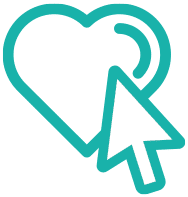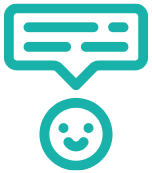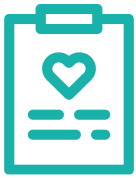Become an Egg Donor
ApplyDonate Eggs with Pinnacle Egg Bank, here’s why:
- You will be compensated for your time and commitment on a tier-based schedule, dependent on the number of. times you donate. Compensation is provided on the day of your egg retrieval. Currently, we allow donation a maximum of six times per donor.
- We will pay for screening costs, medical insurance, travel to your retrieval clinic, and accommodations if necessary.
- We will assign you a patient navigator who will be responsible for your cycle and provide support throughout the egg donation process.
- With over 30 clinics nationwide, we provide access to some of the most experienced physicians in the nation.
- Most of our egg donors choose to donate more than once because of a positive and fulfilling experience. Many women even go on to refer their friends to become an egg donor with us. We see this as the best testimonial possible.
- Egg donation is an amazing gift, and thanks to you, intended parents’ hearts and homes will be full.
What Does It Mean to Donate Your Eggs?
Donating your eggs means going through the process where eggs that your body would normally discard during your period are retrieved instead. The eggs are then used for IVF by someone who is unable to have a baby with their own eggs. Egg donation allows intended parents to build the families they have always wanted. We invite you to explore the ‘Process of Donating Eggs’ resource page that will explain egg donation step by step.
If you are wondering what it’s like to become an egg donor, our previous egg donors have shared their stories in our egg donation blog, including what motivated them to become an egg donor, what was most challenging, and what was most rewarding during their experience.

What Are the Requirements To Donate Eggs?
We consider all applicants on a case by case basis, and although many egg donors who we work with are relatively local to Los Angeles or Miami, we work with donors based across the whole of the US. Egg donation requires a certain commitment of your time as well as numerous visits to one of our clinics. Although we may be able to work with a local clinic for your initial testing and monitoring, you will need to travel to the closes Pinnacle Fertility clinic when it is time for the egg retrieval procedure.
You will also need to meet some basic requirements in order to donate eggs with us, which include:
Age 21-29
Good general health
BMI < 30 (not medically obese)
No sexually transmitted diseases within last 12 months
Non-smoker
Family history without significant health or hereditary issues
Do You Get Compensation For Egg Donation?
Egg donors are compensated for their time and effort when they donate eggs. Pinnacle Egg Bank has competitive compensation packages, which your intake coordinator will review with you when you apply to become an egg donor. We provide compensation at the time of your egg retrieval procedure.
You may qualify for an increase in compensation when you donate multiple times. In accordance with ASRM guidelines, you may donate up to six times throughout your lifetime.
At Pinnacle Egg Bank, we cover screening costs, provide medical insurance, and cover travel expenses to your retrieval clinic. This includes accommodations if necessary.
How To Donate Your Eggs

Fill out the online application form
One of our egg donation coordinators will contact you as soon as we review your application.

Consult with a medical professional at Pinnacle Fertility
You will have a phone consultation with a medical professional who will review your medical history in detail. You will then have medical screening performed before your cycle. This could include ultrasounds, bloodwork, psychological consultation, and a genetic assessment.

Electronic Donor Profile
A personalized donor profile will be created for you. We will ask you for photographs to go along with your profile. Your profile will then be shared with intended parents through an online database. You may also be asked to participate in a photoshoot at no cost to you.
How Often Can You Donate Eggs?
According to guidance from the ASRM (American Society for Reproductive Medicine), donors can generally donate up to 6 times in their lifetime. If a donor decides to do more than one cycle with us, they must wait 3-4 months between each donation cycle to allow their bodies to rest.
How Long Is the Egg Donation Process?
Overall, an egg donation process itself can take anywhere from 1-2 months. Once a donor is selected for a cycle, under the direction of their assigned nurse, they start taking birth control pills for about 2-6 weeks and then self-administered hormone injections for about 2 weeks after that. After the hormone injections, donors are ready for the egg retrieval procedure, which only takes about 20 minutes.
Egg Donation Near Me
Pinnacle Egg Bank has affiliate banking clinics in many cities across the country, and our network is always growing! We successfully work with donors from all over the United States, and when travel is needed, we simply find outside monitoring clinics near you for some of your appointments. When donors are in-cycle, they typically will complete the first week of monitoring appointments at the outside monitoring clinic. Next, we fly them out to their banking clinic for the remainder of their cycle. We provide flights, hotels, companion tickets, and a per diem to help offset your expenses while away from home. When traveling for your retrieval, you can expect to be away from home anywhere from 7-12 days.
Be Amazing, Donate Eggs!
Egg donation is a life-changing gift. If you feel that you meet all qualifications and wish to become an egg donor, please submit an application.
If you are not quite ready to apply and have questions, visit our frequently asked questions page or contact our donor intake team. If you can’t find an answer to your specific questions, we’re happy to help!
Answers to Additional Egg Donation Questions You May Have:
I don’t live local to a Pinnacle Fertility clinic, can I still become an egg donor?
Absolutely! We work with egg donors all over the country. You will be able to complete some of the initial medical testing at a local fertility clinic, and psychological screening and genetic counseling are completed via phone consultations. When it’s time to travel for your first screening appointment or your egg retrieval procedure, we will cover any costs associated with travel. This includes gas, flights, accommodation, and per diem to help offset your expenses while away from home. We will also provide you with donation-related medical insurance that covers your egg donation journey.
If you donate your eggs will the baby be yours?
Genetically – yes (partially) as the donor is providing the egg. Legally, no. Donors are not considered legal parents or guardians and have no parental obligations or rights to any offspring conceived through their donation(s). You can learn more about legal considerations of egg donation in our blog: Do Egg Donors Have Parental Rights?
If you donate eggs can the child find you?
At Pinnacle Egg Bank our egg donation program is anonymous. We take every possible precaution to ensure our donors’ anonymity. We do not publish any possibly identifying information publicly, not even your first name. That being said, with social media and ancestry testing, it may be possible for offspring to find an egg donor. Our donors are provided with legal representation and sign an agreement, detailing how they are protected. Once an egg donor conceived child turns 18, they can request the donor’s identifying information from our clinic. If this happens, we will contact the egg donor and the donor can decide at that time if she would like contact with the child.
Is egg donation painful?
Each egg donor’s experience will vary. However, our egg donors generally do not report any major pain during the process of donating eggs. Donors tend to report symptoms that mimic the symptoms of an intense menstrual cycle, such as cramping and bloating. Some egg donors report minor changes in mood; sometimes feeling more elevated and other times experiencing some irritability. You can learn more about managing the side effects of egg donation in our blog here.
If you donate your eggs can you still have a baby?
There is no known association between egg donation and infertility. We have seen several of our egg donors complete multiple cycles, take a break to have their own families, and come back to cycle again.
If you donate your eggs do you still get your period?
Periods return to their pre-donation pattern within 2-6 weeks following the egg donation process.
How many eggs can you donate?
When you donate your eggs, we retrieve whatever eggs your body would’ve naturally discarded that month. During ovulation, a woman will ovulate one egg, however prior to this, there are other egg follicles that die off and are discarded. Taking fertility hormone shots allows the egg that would normally die to grow and ultimately be retrieved.


